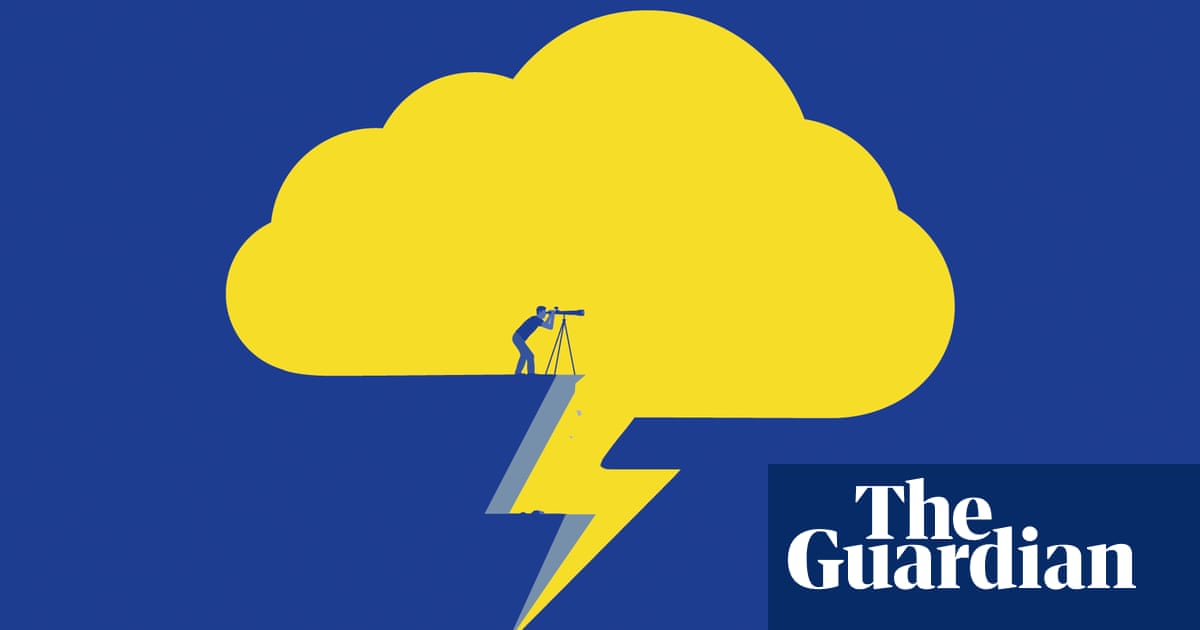
Idon’t know about you, but lately I have been craving the cruel, cold horror of the blitz. Haven’t you? Huddling underground in tunnels, staring at the ceiling as the whistle of a bomb drops to ominous silence, the distant rumble of explosions, not knowing whether your family are alive, whether they will find enough of your friend to hold a proper funeral; whether, when you emerge into daylight again – if you ever emerge into daylight again – the things you hold dear will still be there. Doesn’t that sound good to you? They grew their own veg! They knew their neighbours’ names! It was a different era! Men wore shirts!
We’re talking about “blitz spirit” again, obviously, because every time something mildly crisis-shaped happens in this country we hark back to the time our forebears barely survived a war. A couple of weeks ago we were on the precipice of blitz spirit mania because we manufactured a panic where a lot of people thought the petrol might run out. This week we’re doing blitz spirit because supply chain issues, as a direct result of voting for Brexit, might threaten the holy sanctity of Christmas dinner. This winter is going to be long and hard and cold, and for a lot of people the next few months will see them having to make the impossible decision between food and fuel. As a solution, the politicians and the media will cheerfully tell them: remember the war! Remember blitz spirit! They grew their own veg! Men wore shirts!
This week Iain Duncan Smith has been attracting no little criticism for suggesting civil servants need to get back into the office – presumably to protect precious small businesses such as Pret a Manger and commercial landlords with a diverse city-centre portfolio. In a really quite bizarre piece in the Mail on Sunday that included a segue about trying to get his motorcycle licence that any other writer on earth would have had firmly edited out, Duncan Smith – a man born in 1954 – wrote: “When I think of all the brave civil servants who went to work in the 1940s, determined to do their bit regardless of the threat from falling bombs, I wonder what has happened to us as a nation.” Well Iain, we got broadband.
It’s important at this point to note – and with due respect, I wasn’t there, but I am going on what I’ve heard – the blitz wasn’t very good. As the historian Richard Overy wrote the last major time Britain invoked blitz spirit, ie March 2020, the term was “an invention at the time” that “masked the reality of being bombed night after night”. People watched their neighbours die and their houses turn to rubble. People trekked out to the countryside only on the promise that food, shelter and organised protection awaited them. It’s weird that, in the years since it has evolved into a cheerful slogan, which glorifies surviving through war then spending the rest of your life dealing with the untreated trauma of doing so – it’s even weirder that anyone in this bitter, atomised country thinks they are particularly capable of it any more. To me, the blitz spirit suggests showing empathy for your fellow man, enduring hardship and discomfort in pursuit of the greater good, and cheerfully getting on with things without grumbling at all. Does that describe the last 19 months of reality to you?
It’s all the more bizarre to see blitz spirit being so cheaply invoked during the solemn time of year where people start to get very strange about wearing poppies. The further we get away from the world wars, the more time we spend feverishly commemorating them, but listening to Iain Duncan Smith – a 67-year-old man learning to ride a motorcycle, ie someone who clearly knows a thing or two about having a crisis – it sounds like a case of just throwing a few sandbags up outside Whitehall, keeping calm and carrying on. I can’t keep up: was war so unendurable that we need to spend weeks of our year respecting it, or was it basically quite easy if you had a flask of brandy and were made of sterner stuff?
I am, as ever, haunted by the words of Hagrid actor Robbie Coltrane, born in 1950, who last year came to the defence of J.K. Rowling. “They wouldn’t have won the war, would they?” Coltrane – who himself has never won a war – told the Radio Times about the “Twitter generation” criticising her, and in quiet moments that sentence floats into my brain again in a slightly Scottish but mostly English brogue: They wouldn’t have won the war, would they? They wouldn’t have won the war, would they?
My solution to this is radical but I think it would please basically everyone in the country: everyone born in the 1950s who thinks war is good because they ate stew a lot when they were children and they never really had a conversation with their dad, they can go and live in a special fantasy war camp that I’m setting up at the Black Country Living Museum. We’ll set the air raid sirens off every afternoon and they can spend a disproportionate amount of time queueing up for Spam. There’s only one TV channel and it’s in black and white. The men can wear shirts and know each other’s names and grow their own vegetables, and they never have to go into the outside world of 2021. Robbie Coltrane can live next to Iain Duncan Smith, and both their lives can be absolutely dire, just like they apparently both want them to be, and then the rest of us never have to hear about the blitz spirit ever again.
Joel Golby is a writer for the Guardian and Vice and the author of Brilliant, Brilliant, Brilliant Brilliant Brilliant












